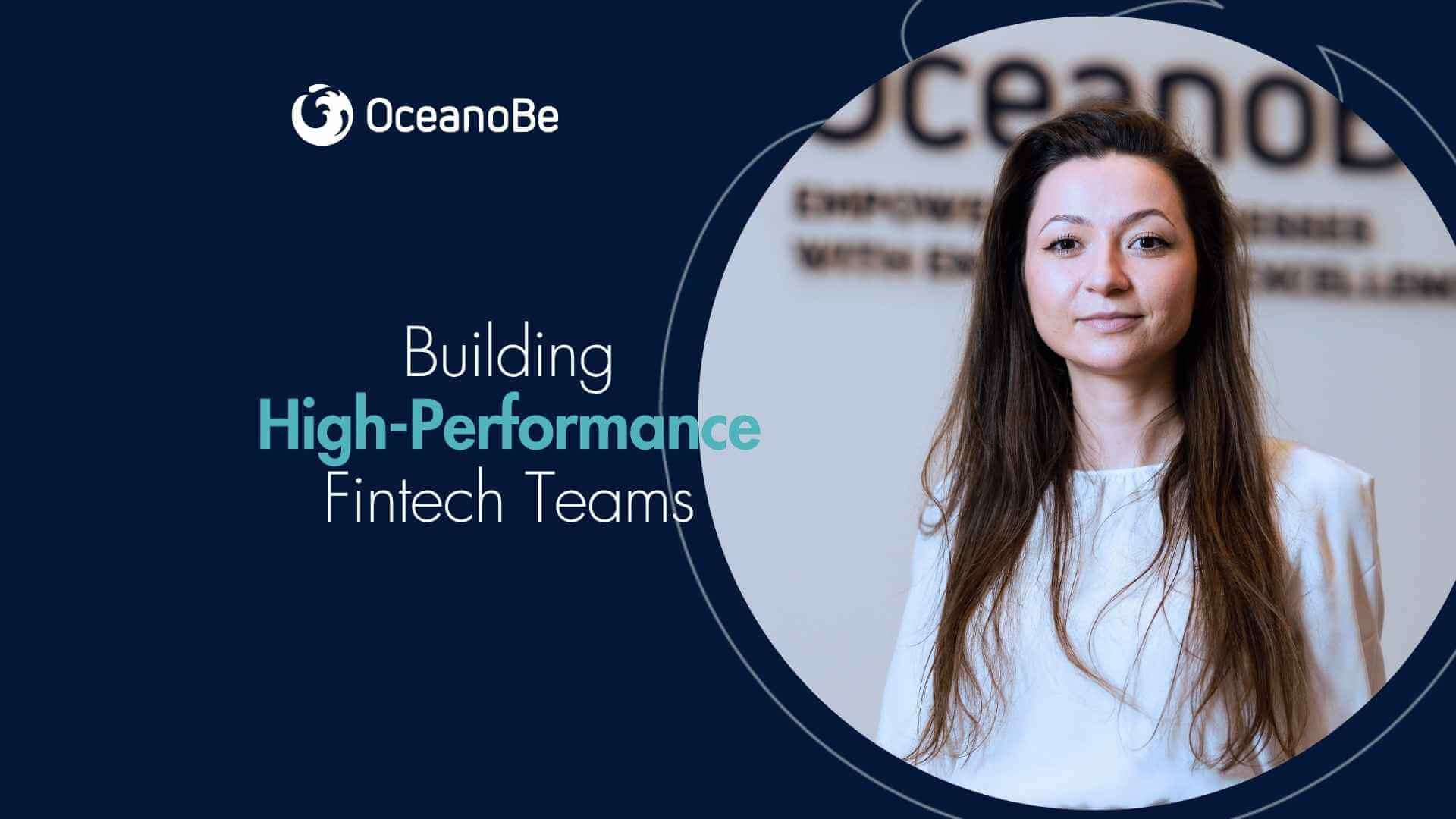Building High-Performance Fintech Teams
Best Practices and Strategies for Scalable, Secure, and Impactful Development
Best Practices and Strategies for Scalable, Secure, and Impactful Development

In the fast-moving world of fintech, technology is only as good as the team that builds it. From secure payment systems to scalable banking APIs, behind every successful fintech product stands a high-performance team—one that blends technical skill, domain knowledge, and a collaborative mindset. At OceanoBe, we’ve helped shape fintech teams across Europe, supporting everything from digital wallet innovation to core banking modernization. Here’s what we’ve learned about what it takes to build and sustain top-tier fintech development teams.
Fintech development requires a team structure that reflects both agility and regulatory precision. Traditional monolithic setups simply can’t keep up with the pace or complexity of modern financial platforms. Instead, the most successful teams adopt a cross-functional structure, where developers, QA engineers, DevOps, product owners, and compliance experts work as an integrated unit.
A typical fintech project benefits from organizing work into feature-based squads, each aligned with a specific domain—be it KYC/AML, payments processing, user onboarding, or reporting. This decentralized model improves delivery speed, ownership, and domain-specific expertise. Embedding QA and security into these teams (instead of handling them as separate phases) also ensures test automation and compliance checks become part of the delivery lifecycle from day one.
When hiring for fintech roles, it’s not just about clean code or fast delivery. The right candidate must understand how their work maps to compliance, audit-readiness, and risk mitigation. Experience with domain-specific standards (like PCI DSS, PSD2, or ISO 20022) is a huge plus, but so is a mindset geared toward collaboration, security, and performance.
Some key traits to look for include:
Security-conscious thinking: Awareness of how even small code changes can impact data protection.
Experience with fintech stacks: Java/Kotlin, Spring Boot, Kafka, Docker, CI/CD, and test automation tools like Cypress or Playwright.
Soft skills: Communication and adaptability are vital in highly regulated, fast-changing industries.
At OceanoBe, we’ve built custom hiring pipelines that combine technical assessments with domain case studies, allowing us to assess both programming ability and financial logic application.
The culture within a fintech team must strike a balance between velocity and vigilance. Developers should be encouraged to innovate and iterate fast, but always within the constraints of auditability, traceability, and data integrity.
We recommend creating a development culture centered around:
Ownership: Each squad owns their features end-to-end—from discovery to deployment and monitoring.
Transparency: Use shared dashboards, daily standups, and cross-squad retrospectives to keep priorities and blockers visible.
Compliance awareness: Offer internal training sessions on secure coding, fraud detection, and regulatory updates.
Continuous learning: Encourage certifications in cloud architecture, security (e.g. AWS Certified Security, CEH), and finance-related fields.
Strong fintech cultures are built, not bought. They come from leaders who model the right behaviors and invest in mentoring and career growth.
Sustaining high performance goes beyond hiring well—it’s about keeping talent engaged, aligned, and continuously improving. Some practical strategies include:
Use OKRs or team KPIs tied to business impact (e.g. transaction success rate, time-to-market for new features).
Invest in observability tools like Kibana, Grafana, and OpenTelemetry to monitor system health and support proactive issue resolution.
Implement DevSecOps pipelines to bake in testing, vulnerability scanning, and code quality checks from the first commit.
Recognize and reward performance with both peer recognition and leadership acknowledgment.
At OceanoBe, we’ve worked with fintech clients to build feedback loops between development, support, and business teams—allowing engineering teams to stay responsive to user feedback and market trends without burning out.
In fintech, high performance isn’t optional—it’s mission-critical. Whether you’re building a payments app, modernizing a core banking system, or launching an embedded finance product, the structure and mindset of your team will shape your outcomes.
At OceanoBe, we help fintechs build and scale engineering teams that are fast, secure, and regulatory-ready. If you're looking to partner with experienced developers who understand both code and compliance, we’d love to talk.